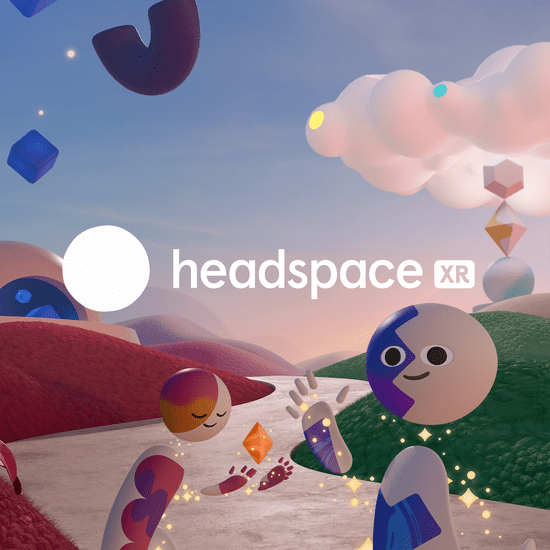Why Are Brits Taking More Sick Days Than Ever?
Brits Are Taking More Sick Days Than Ever – Have We Reached Peak Burnout?

If you're reading this from your bed or sofa because you've called in sick to work, you're not alone. According to national statistics, the first Monday in February is the day when people are most likely to pull a sickie at work. Why? There are a few theories floating around. It's often the first payday since Christmas, meaning people have had a heavy weekend. Another theory is that people see January as a time to reflect on their career paths, meaning that a lot of these absences are actually used to attend interviews.
But if we go beyond the surface, there is a rather bleak picture of our workforce emerging. Research shows that there is a growing number of Brits calling in sick to work due to stress, burnout, and mental health issues. And it's affecting employees of all levels.
Staff took on average 7.8 sick days in the past year, up from 5.8 before the pandemic.
On 31 January, H&M's CEO Helena Helmersson abruptly resigned due to essentially being burnt out. "It has been very demanding, at times, for me personally, and I now feel that it is time to leave the CEO role, which, of course, has not been an easy decision," she said in a statement.
According to the Chartered Institute for Personnel and Development (CIPD), sick days at work hit the highest level for 10 years in September 2023. Staff took on average 7.8 sick days in the past year, up from 5.8 before the pandemic. From these numbers, mental health issues were cited as the third most common reason for needing time off.
If we look further into these statistics we can see that women are disproportionately affected. In fact, a study by the Harvard Business Review found that women globally are more likely than men to feel guilty about taking sick days, further highlighted by the amount of women working through debilitating period pains. Women pushing to work through sickness and mental overload can make health worse in the long run, causing even more problems.
Mental Health UK has recently released their first ever annual Burnout Report. The new research, conducted by YouGov, found that nine in 10 UK adults experienced high or extreme stress in the past year, highlighting a prevalent issue in the population. A fifth of workers hit breaking point and needed to take time off work due to poor mental health caused by pressure or stress.

Nathalie, a 31-year-old business owner from the North East, was one of those workers. She explains that she's suffered from burnout in every office job she's ever had. After spending time working in a number of different industries from fashion to talent agency work, she's finally found a way of managing workplace stress and founded her own yoga studio, Waking Dreams - but it wasn't an easy journey.
"I've always ended up leaving jobs. I didn't hate them but it just got to the point where I couldn't think of anything worse than getting up and going into the office," she tells POPSUGAR. "It happened in every job that required me to be static and it triggered so many physical reactions. I was depressed and felt like banging my head against the wall every day. I would just cry each morning before even sitting down at my office chair."
"I would just cry each morning before even sitting down at my office chair."
This intense feeling of burnout also trickled into Nathalie's personal life and affected her relationships. She says: "When I was living with partners during that time period, I was bringing such negative energy home and it was affecting my relationships. In my early 20s, I was just combating that by getting absolutely smashed in the pub and then going to work the next day hungover."
During the pandemic Nathalie realised that she really needed help, but she felt that the workplace mental health services weren't adequate and only touched the surface. "It felt like a tick-box from my workplace - I didn't feel like there was any real desire from them to get to the root cause of my issues. I left that job and switched to teaching yoga and also started a part-time masters degree in Psychology and the Neuroscience of Mental Health," she says.
It wasn't until she was later encouraged to go for a screening that she was diagnosed with Attention Deficit Hyperactivity Disorder (ADHD), a neurodivergent condition that affects behaviour and includes feelings of restlessness, trouble with concentration, and impulsive acts.
She tells POPSUGAR: "My ADHD diagnosis was a massive relief. The reason why people with ADHD will often suffer burnout is quite specific. Interest and motivation in an ADHD brain is governed by reward pathways in the brain, and once something has ceased to be novel or interesting, it will cease to be rewarding - but you still have to do that task."
"More than anything, my experience with burnout has taught me the importance of compassion in the workspace."
This is often not conducive to office environments which often include repetitive, static tasks, and can also lead to boreout, when intense feelings of boredom can damage mental health. "The only way I can describe it is like running through mud," Nathalie continues. "The switch off in my brain will often just sneak up on you. One day, you'll be finding something quite interesting and then the next day, you literally can't think of anything worse. And masking to fit in at work, I think, is a big one."
Nathalie's own experience of workplace stress has affected how she runs her own business. "It's taught me to really listen to the way my employee's need to do something - and not worrying if they're working style is different to mine," she explains. "If someone tells me they will work better if they do four hours at home, and then a two hour break, and then another six hours in the office, I will listen. As long as the work is being done, I am very understanding. More than anything, my experience with burnout has taught me the importance of compassion in the workspace."
In order to encourage workplaces to think more fervently about mental heath, Celine Erorh, 28, founded Celutions UK in 2018, a social enterprise that is dedicated to creating solutions to the problems surrounding mental health after suffering herself during university. "I was struggling with anxiety and, at that time, no one knew how to help me but I knew I couldn't be the only person feeling that way," she tells POPSUGAR.
Erorh emphasises the importance of setting boundaries in the workplace. "Everyone talks about the importance of self-care, but it's not just face masks and bubble baths. In the workplace a form of self-care is setting boundaries. It's a tough form of self-care, but it's necessary," she says. "For example, telling your manager, 'I don't have capacity right now or I can't do what you're asking me to do at this current moment in time.' Or if you work from home, then draw a line between work and home, to keep to a routine. Don't sit on your laptop at 8pm if your work day finishes at 5pm."
"In the workplace a form of self-care is setting boundaries."
If you're shuddering at the thought, reframe this kind of boundary-setting. "There is no way that you can give your best in anything that you're doing if you're also not at your best. So, prioritising yourself, establishing those boundaries, and learning to say no is key," she adds. "Work-life balance isn't actually a thing because that insinuates that everything's going to be 50/50. It suggests that we're going to have 50 percent work and 50 percent play, but honestly, life doesn't work like that. Balance isn't the right word here - it's more like harmony. So, having work and your personal life work together and making sure that you feel fulfilled and content in both areas of your life."
There is a world in which you can meet deadlines at work and have time for socialising with friends and family, it doesn't have to be one at the sacrifice of the other. "It's about finding the harmony where you are performing well at work but not at the expense of your physical and mental health."
So if you've found yourself needing to take sick days just to protect your mental health, it's time to make some changes. Below, Stress Coach and Counselling Directory member, Clair Elmes, offers some practical takeaways to help you recognise burnout.
How to Spot Signs of Burnout
How to Prevent Burnout in the Workplace
While burnout can sometimes be seen as an individual problem, what is clear is that burnout culture is often reinforced by the workplace itself. The environment employees are surrounded by, and the expectations set makes the world of difference. Elmes reinforces to employers the importance of prioritising mental health. She says: "By having a clear People and Culture Strategy and taking steps to prioritise wellbeing in the workplace, companies can expect to see better results."
So, this National Sickie Day perhaps employers could take the time to actually reflect on the environment they create for their employees . Or maybe reach out to a colleague you might feel like is struggling. From the case studies and statistics, we can see that sometimes there is a lot more bubbling beyond the surface than just "pulling a sickie."






